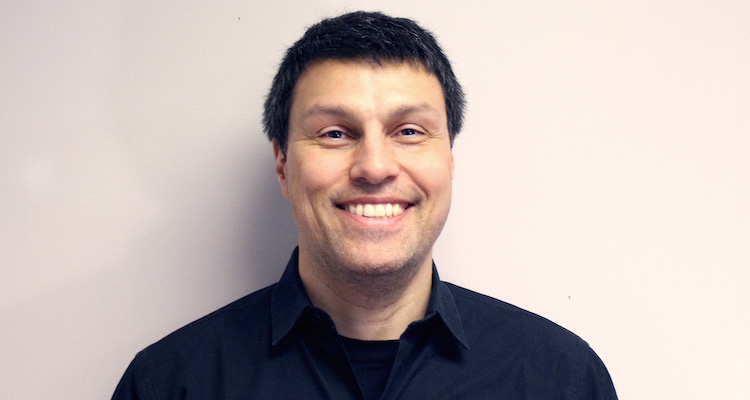Listen Now
Dr. Vincenzo Bollettino is the Director of the Resilient Communities Program at the Harvard Humanitarian Initiative. Prior to his current appointment, he served for five years as its Executive Director. Enzo has twenty years of professional and academic experience in international politics, humanitarian action, civil-military engagement in emergencies, and the security of humanitarian aid workers. He has spent the past fourteen years of his career at Harvard University in administration, teaching, and research where his current research focuses on civil military engagement during humanitarian emergencies, the security of humanitarian aid workers, and on the professionalization of the humanitarian aid field. You can connect with Dr. Bollettino here: http://hhi.harvard.edu/people/vincenzo-bollettino https://twitter.com/vbollettino
OUR CONVERSATION INCLUDES THE FOLLOWING:
Organizations
- Unicef
- Center for Excellence
- USAID
- Kathmandu Living Labs http://kathmandulivinglabs.org
- Harvard University
- The Harvard Humanitarian Initiative https://harvardhumanitarianblog.wordpress.com
- Humanitarian Academy at Harvard http://www.humanitarianacademy.harvard.edu
- Center for Excellence in Disaster Management and Humanitarian Assistance https://www.cfe-dmha.org
Topics
- Development research
- Science applied to development
Places
- Cambridge, MA
- Rwanda
- Denver, CO
- Hawaii
- Kathmandu
EPISODE CRIB NOTES
Harvard Humanitarian Initiative ’08 After a post-doc. Executive Director. Focused on research on the humanitarian field, technology, behavior, tools for the field. An academy provides courses along with the Public Health department for students and professionals. Research projects, resilience to natural disasters (typhoons), engagement in response, civil military engagement in the Philippines and Nepal. On researching development As part of the response to disaster management, he is asked for assessment. It leads to engagement and people’s perception. Publishes a first paper. Later, a three year project on resilience by request of interested agencies for readiness to natural disasters in the Philippines. Every proposal is a team effort. There is a lead but lots of input from half a dozen. A Fellows program allows the Harvard Humanitarian Initiative to connect with local organizers, academic institutions and professionals. Grant privileges Harvard brand helps in bringing more opportunities, but it is also a challenge because backers assume Harvard does not need to be funded. Military engagement in development Many situations (conflict and natural disasters) make local militaries important, but coordination is complicated. Research is intended to uncover ways to cooperate. And upcoming paper reveals low ‘engagement IQ’ for cooperation, provides guidelines for relief and response activities. It also deals with mutual perceptions between military and NGOs regarding organization, efficiency, sensibilities and public image management. There are guidelines, dissemination and education are the underlying issues. Problems with enforcement The way military assets are developed does not take guidelines into account. Why are they not more known, how can they be spread further, are main research topics. Additional guidelines are also necessary because some of them are not supported by evidence. Career path Grad school in New Jersey, looking towards New York. Initial interest in hard sciences, at school turned into social conflict. ’96 UNICEF internship. There was no going back: mission, culture, organization. Rwanda genocide triggers and explosion in humanitarian response. Cold war is over, good intervention is warranted. New technologies are changing the face of response. Communities are more capable of responding themselves. People on the ground can communicate and get intel for quick action. Development career in Denver, CO Started Ph.D. straight after Bachelor’s degree. Not the best idea for everyone. Enzo had a lot of research questions to explore, which is not always the case. Graduate studies require a clear idea of the path intended to sail, how a problem will be explored. A Master’s degree does make a difference but choosing the right program is critical, faculty, methods used, reputation, location, relationship with in-field organizations. Harvard Work becomes a chain of opportunities depending on the previous one. As he is preparing the dissertation, a chance to study in Hawaii is offered by the Center for Excellence. Organizations he works with are linked to Harvard. He finishes the Ph.D. already connected with the University. Research versus field work Always a tension, never wanting to stay doing only one thing. He wants management experience, but continues with research and teaching. Also in field work and policy is important. An academic position should never be limited to desk work. Research topics are varied and switching fields is often times difficult and slow. Currently trying to move from research on military engagement to civil response. USAID push: 30% of resources must come locally. The trend is supported, disaster relief must be institutionalized inside the nations facing risk. Private organizations become more relevant. Example: Kathmandu Living Labs, local resilience organization. Provide crowdsourced information for disaster relief. Anecdote As a UNICEF intern, a lot of data is missing. How to improve evidence data repositories? The answer was to reach out to organizations with data. Science comes to play a large role in making data valid and useful, it was very compelling, made him lean into the academic side of things. Advice for development research There is not one path, opportunities for professionalization and training in the field is growing. Passion is fundamental, as are a basic set of skills that make impact. Researchers should get a mix of practical and academic skills to make rigorous research approachable.Please share, participate and leave feedback below!
If you have any feedback you’d like to share for me or Dr. Bollettino, please leave your thoughts in the comment section below! I read all of them and will definitely take part in the conversation. If you have any questions you’d like to ask me directly, head on over to the Ask Stephen section. Don’t be shy! Every question is important and I answer every single one. And, if you truly enjoyed this episode and want to make sure others know about it, please share it now:[feather_share show=”facebook, twitter, linkedin, google_plus” hide=”reddit, pinterest, tumblr, mail”]
Also, ratings and reviews on iTunes are very helpful. Please take a moment to leave an honest review for The TOR Podcast! 



